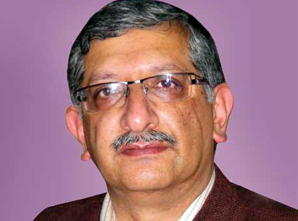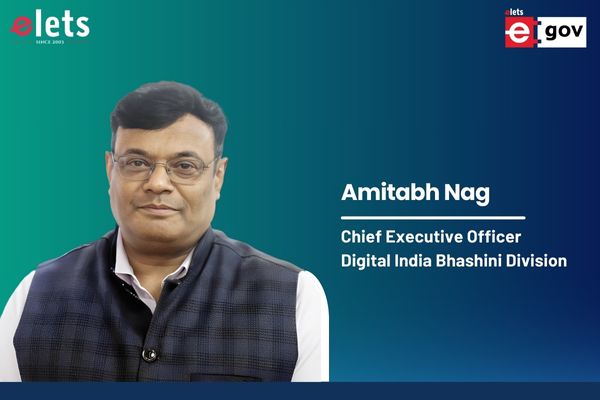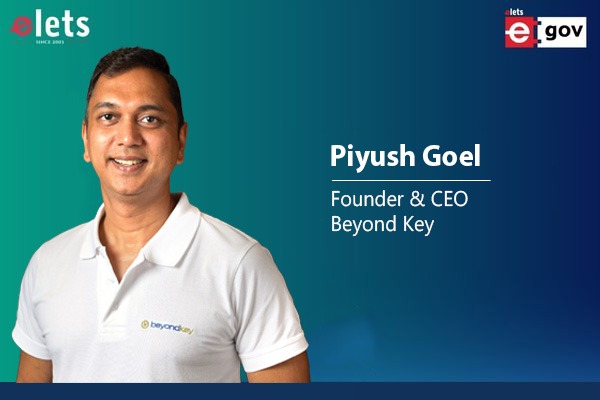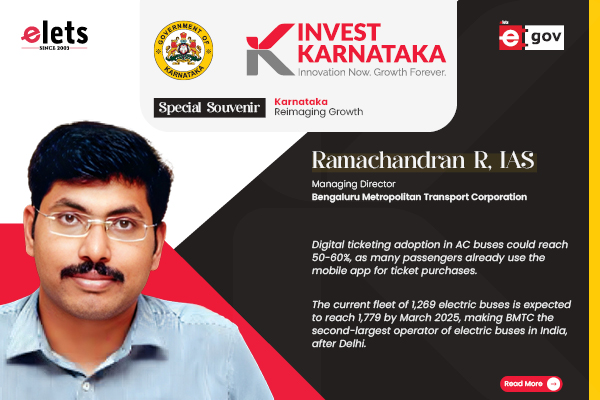
 Umang Narula
Umang Narula
Chief Electoral Officer, Jammu & Kashmir
“We have introduced computerisation at every level with the aim of providing a number of services to the electors of the state,” says Umang Narula.
J&K is a border state with a hilly terrain, so it must be challenging to conduct elections here. Tell us about the initiatives that you have taken for conducting smooth elections.
In J&K, there are 6 Parliamentary seats and 87 State Assembly seats. Elections are conducted according to the Representation of the People Act, 1950 for Parliament and the J&K Peoples Representation Act, 1957 for the State Assembly.The basic initiative that we have taken has to do with the electoral role management. In J&K, the situation is somewhat different as compared to what it is in other states. Here the entire electoral roll is in Urdu language. This led to some difficulty for us, as we could not adapt our existing software for this language. Now we have developed a special font through which the electoral roll can be digitised in Urdu. The Electoral Roll Management System (ERMS) enables the Chief Electoral Officer to maintain ‘Electoral Roll’ (Voter List) of the state in a standardized and uniform database as specified by the Election Commission of India. This has facilitated an effective and error free Election process in the entire state, witnessed during the elections to J&K State Assembly in 2008 and the Parliament in 2009.

The Electoral Database Management System in J&K has the following major roles to play for the creation and maintenance of electoral roll: Digitisation of Form 6 – for addition of new voter, Form 7 – for objection on inclusions and deletions, Form 8 – for corrections / modifications and Form 8A – for transposition within AC.
• Keeping track of every citizen’s application /claim.
• Data transfer or uploading to centralized database location.
• De-duplication and searching of data/ record.
• Assignment of work to enquiry officers (by ERO) for received applications / claims for each part in each AC.
• Processing of application (by ERO) after reporting of enquiry officers (acceptance/rejection/ further clarification).
• Integration of Mother Rolls with Supplementary Rolls.
• Printing of a Part’s header page, electoral roll and MIS reports.
• Conversion of photographs from picture format to binary format and merging with alphanumerical data.
• Printing of Electoral Photo Identity Card (EPIC)

What are the key benefits of automation that you have carried out?
The Electoral Roll Management System (ERMS) enables the CEO to maintain the complete electoral roll of state. Automation has reduced the manual work, time and expenses, streamlined the operation and hence increased efficiency, transparency and productivity. It has also facilitated publication of accurate and timely electoral rolls and EPIC cards.

You have also introduced a system through which new voters can enrol themselves online. Tell us about it.
The online system of enrolment is proving quite successful in J&K. This is basically an e-filing facility. Any person, who wants to enrol himself as a new voter or make a modification in his earlier enrolment, can go online and fill up an online form. The form will come back to us at the backend and get processed. The entire process of new voter registration or an addition, modification or deletion is done through the digital medium only. The online applications reach the field officers who can approve or reject the request on basis of facts and documents.The online system has led to the electoral rolls in the state becoming very secure. No one can make any changes in the electoral roll without putting in their digital signatures and every activity is monitored and recorded. We are also putting our entire electoral roll online on our website. The electoral roll can be accessed in both English and Urdu.
Mobile telephones have now become a tool for empowerment of citizens. In what ways is the election department using this technology for citizen’s benefit?
From this year, the election department in J&K has launched a number of SMS based services. If you want to know the status of your application,you can SMS a particular number. Through SMS you can find your EPIC card number, the details of your booth level officer and of the local police station. The entire online process is very transparent, new voter names appear on the website, so that everyone can see who is being added in any particular constituency.
In many areas of the country,there have been complaints about fake electoral rolls. What are you doing to ensure better electoral roll management?
We have developed software for de-duplication of data. We operate databases under the instruction of Election Commission of India. As of now we are not allowed to share the database with any other entity. Our own software is proving quite useful for detecting duplicate data.We have also been able to detect and rectify a number of junk errors. We are also doing latitude longitude mapping of all polling stations.
J&K faces problems of militancy and some other across the border incidents. How difficult is it to conduct elections in the state?
On the whole we are managing the task of conducting elections quite well. Then there are many things in the back-end that are needed for elections. For instance there is need for adequate security. The polling stations have to be managed well through good transportation systems, communication systems. Every district will have this. For maximum benefit such facilities have to be centralized. We have created a small data center for ourselves here to run all the applications that can facilitate a smooth conducting of elections.
It has often been found that some candidates spend more money than they are entitled to. What kind of monitoring system should be in place to ensure that such incidences do not happen?
The financial rules for the conduct of political parties are laid down by the Election Commission of India. The Election Commission has observers on the ground to ensure that political parties and candidates do not overspend. So I don’t think this is a problem area. The rules and systems are already in place.
These days the people who vote in elections are generally from the poor class. The middle class is not voting and the upper class is not voting. Are you sending any message to mobilize voters?
We have an ongoing programmer through which we are reaching out to the younger generation in urban areas. We are trying our best to make them aware of our democratic system. We are also asking them to enroll in the voter list.To make youngsters register themselves in the voter list, we are tying up with the colleges. This ensures that those coming out of colleges are also registered voters. We are using the modern media to reach out to the voters. We have coverage in TV, radio and print media.
What is the percentage of average voters’ turnout over here?
Voter turnout was quite good. I think it exceeded 60 percent in the last Assembly elections. Recently we had the panchayat elections where the turnout exceeded 96 percent.
Be a part of Elets Collaborative Initiatives. Join Us for Upcoming Events and explore business opportunities. Like us on Facebook , connect with us on LinkedIn and follow us on Twitter, Instagram.
"Exciting news! Elets technomedia is now on WhatsApp Channels Subscribe today by clicking the link and stay updated with the latest insights!" Click here!













